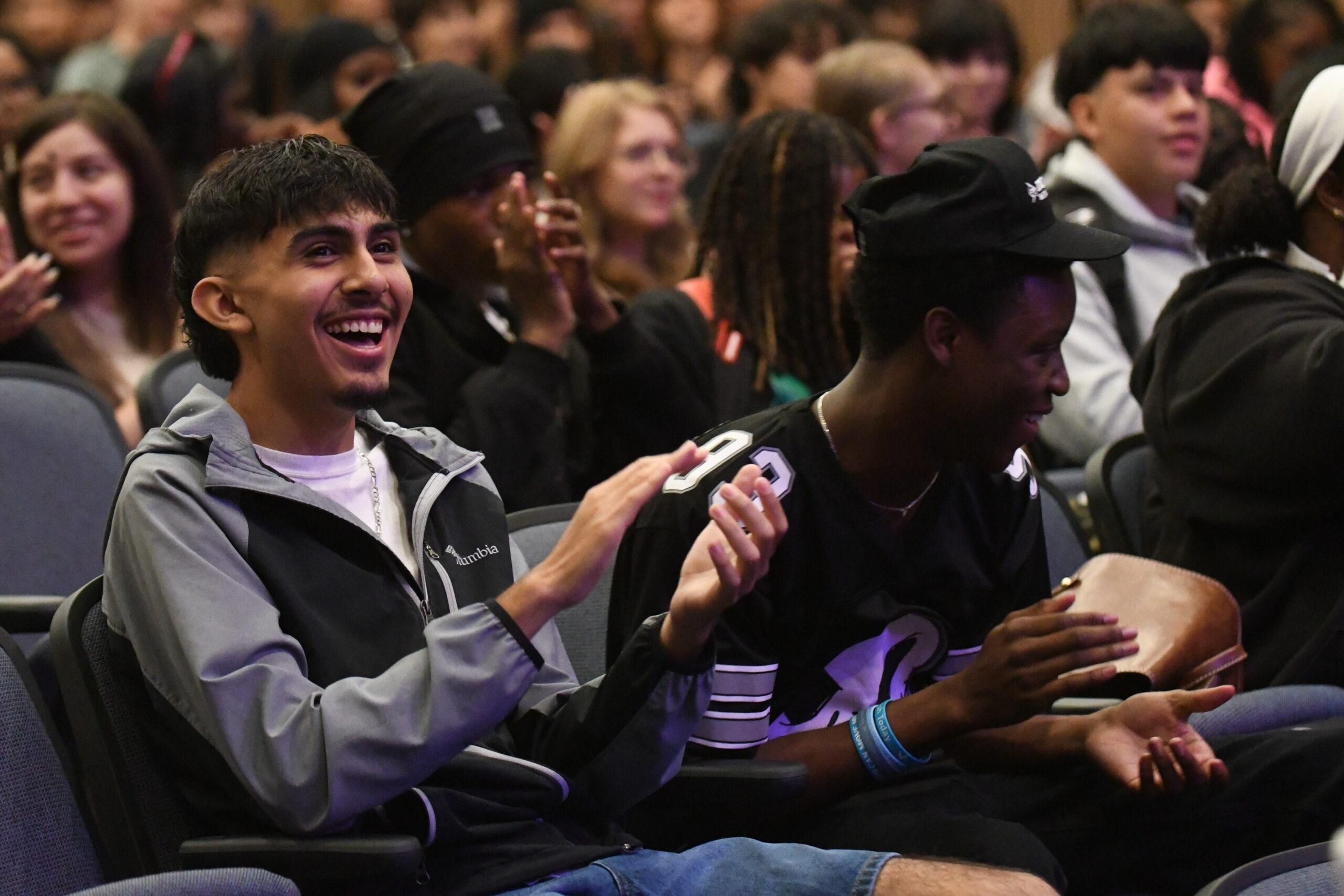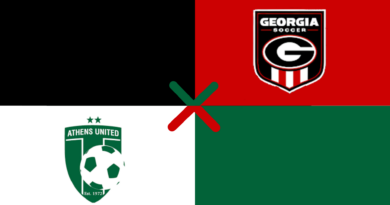
CCSD partnership provides seniors with $1,000 investment portfolio
Thanks to a new program to be implemented with the class of 2026, over 800 Clarke County School District seniors will be finding their own answers to the question, “What would you do with $1,000?”
At an assembly Thursday morning, Cedar Shoals High School seniors learned that each 2025-26 senior graduating from one of the three Clarke County high schools will receive a $1,000 investment portfolio. The program is offered through nonprofit organizations Gifted Savings and TED-Ed.
According to a Clarke County School District press release, an anonymous donor provided $1.2 million in funding, and CCSD is the first public school system in the country to apply the program districtwide. Students will complete modules during weekly advisement sessions to learn about financial literacy. At the end of the year, students will be invited to share their experiences at a TEDx speaking event.
“We believed we could make a real generational impact here, and the community has shown the drive and heart to make it possible. Athens is a place where people come together to do big things, and it can serve as a shining example for the rest of the country,” Gifted Savings Executive Director Josh Landay said in a CCSD press release.
According to Program Director Jennifer Inmann, the money in each student’s portfolio will automatically be invested for them initially. Students cannot withdraw the money until the end of the school year.
“Your portfolio is invested for you, the gifter has made the decision as to what you’re going to learn about. We’ve made sure that it’s low risk, medium risk and high risk investment, so that you get to experience all of that. But through the lessons, you’ll gain knowledge that will allow you to choose when you transfer it to your own investment account,” Inmann said during the senior assembly.
Science department chair Matthew Baker thinks that unique teacher experiences with investing can affect how the material is taught.
“I have a pretty good knowledge base of investing, and I’ve been investing for a while, so I think that would definitely change my lens of how I teach it as opposed to someone who’s not into that. If you’re a brand new teacher, fresh out of college, you’re probably not thinking about investing. So the lens your advisement teacher looks at it through is going to change the way they explain it to their kids,” Baker said.
Student portfolios will contain a growth-based exchange-traded fund (ETF), Bitcoin ETF, bond fund, and certificate of deposit, according to a CCSD press release. One concern Baker shared surrounds the risks of investing in Bitcoin.
“As someone who has dabbled in crypto space, it can be great. It can also be hard, the rug can get pulled out of you really quick. If you’re not watching it and staying dialed on it, you can get burned really easily. Bitcoin has done nothing but really go up, but bitcoin is also not backed by anything,” Baker said.
Senior Carson Druppel is skeptical about the program, hoping for more transparency.
“I wish they would show their credentials more, because when a student asked ‘why should we believe you’ they gave some pretty vague answers,” Druppel said.
Despite their concerns, Druppel says the money could be useful to students to cover college expenses.
“It’s $1,000 and if it’s going to go up by the time I’m graduating, that’s pretty cool. If it actually works out, then it’ll definitely take care of a lot of really important college expenses like being able to pay for a dorm,” Druppel said.
For Senior Gabe Gordon, learning that the organization is a nonprofit eliminated doubts.
“I think that it’s interesting that it’s a nonprofit. At first I thought it was a company, but they don’t really sell anything. It definitely makes me feel more trusting because they’re not trying to sell anything,” Gordon said.
Some students are already planning what to do with their accounts after graduation.
“I was talking to my friends, most of them said they would probably be going to pull it out post high school, though a few of them said they were going to keep investing in it,” Senior Khalon Greene said.
According to a CCSD press release, the funding for next year is already matched. There are also plans to fund the program through 2030 with the Athens Area Chamber of Commerce, Athens Area Community Foundation and other community leaders providing funding.
Baker believes that the program has potential if students decide to keep the investments long-term.
“if it’s treated correctly and taken seriously, then it could be something really awesome, but I think that the only way that works is if you let it grow, manage it and watch it and let it go until they’re a grown adult where you can make real decisions about it,” Baker said.



